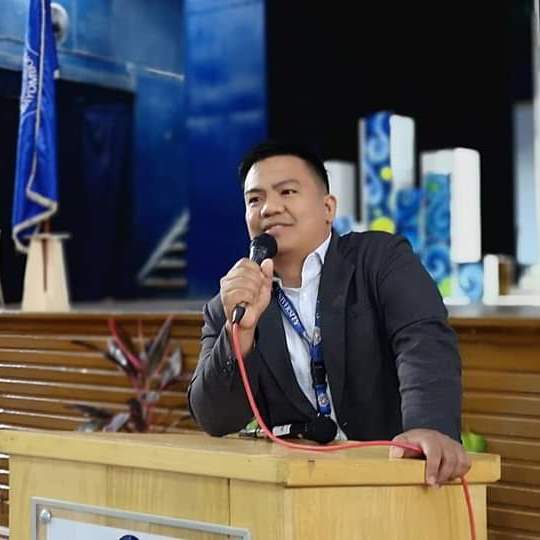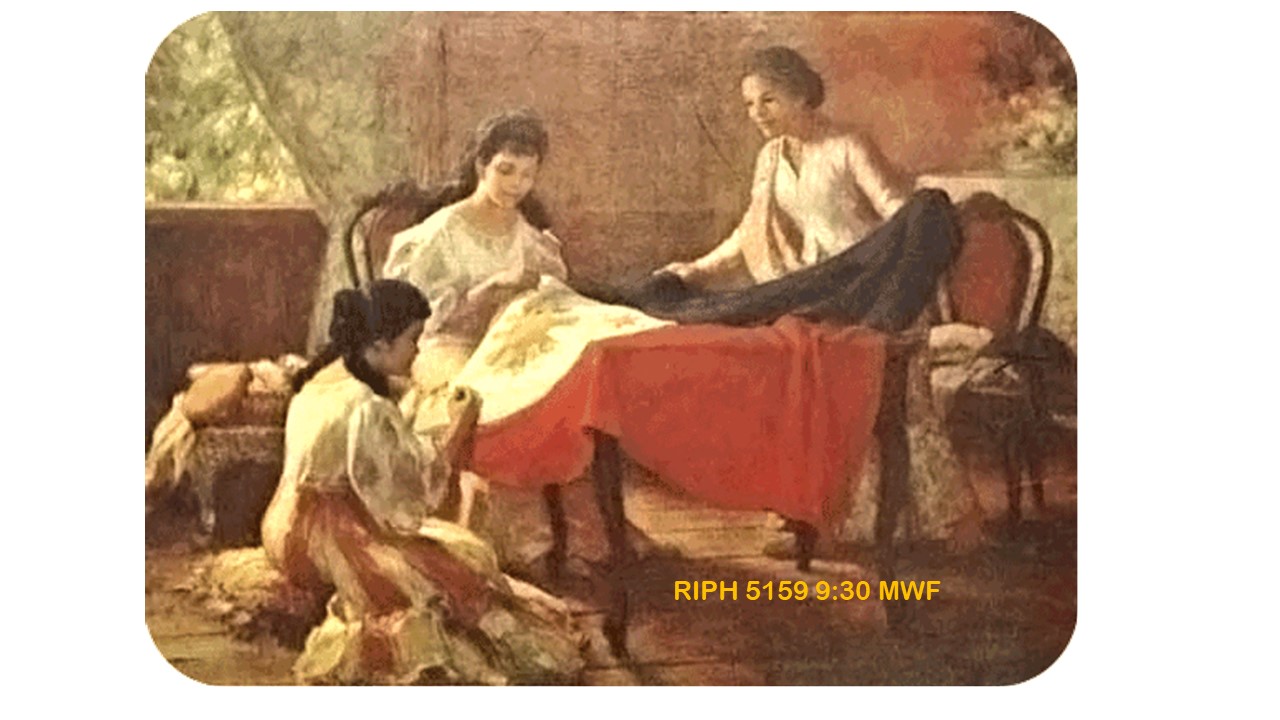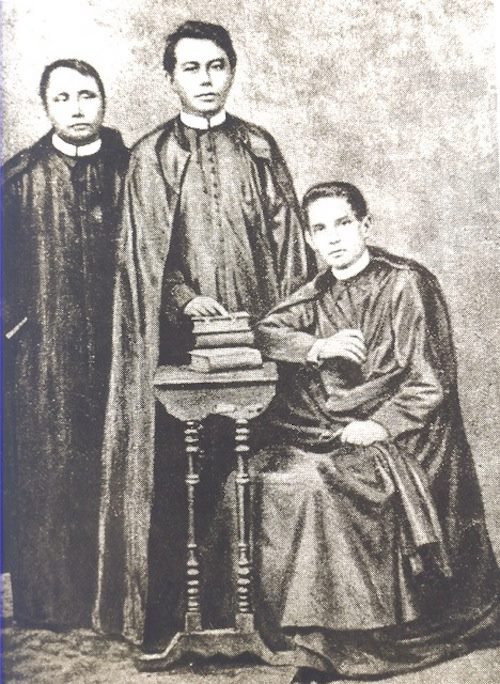Search results: 3380
This course analyzes Philippine History from multiple perspectives through the lens of selected primary sources coming from various disciplines and from different genres. Students are given opportunities to analyze the author’s background and main arguments, compare different points of view, identify biases and examine the evidences presented in the document. The discussions will tackle traditional topics in history and other interdisciplinary themes that will deepen and broaden their understanding of Philippine political, economic, cultural, social, scientific and religious history. Priority is given to primary materials that could help them develop their analytical and communication skills. The end goal is to develop the historical and critical consciousness of the students so that they will become versatile, articulate, broad-minded, morally upright and responsible citizens.
- Teacher: KENNETH MASLANG
- Enrolled students: 60
This course analyzes Philippine History from multiple perspectives through the lens of selected primary sources coming from various disciplines and from different genres. Students are given opportunities to analyze the author’s background and main arguments, compare different points of view, identify biases and examine the evidences presented in the document. The discussions will tackle traditional topics in history and other interdisciplinary themes that will deepen and broaden their understanding of Philippine political, economic, cultural, social, scientific and religious history. Priority is given to primary materials that could help them develop their analytical and communication skills. The end goal is to develop the historical and critical consciousness of the students so that they will become versatile, articulate, broad-minded, morally upright and responsible citizens.
- Teacher: KENNETH MASLANG
- Enrolled students: 35
This course analyzes Philippine History from multiple perspectives through the lens of selected primary sources coming from various disciplines and from different genres. Students are given opportunities to analyze the author’s background and main arguments, compare different points of view, identify biases and examine the evidences presented in the document. The discussions will tackle traditional topics in history and other interdisciplinary themes that will deepen and broaden their understanding of Philippine political, economic, cultural, social, scientific and religious history. Priority is given to primary materials that could help them develop their analytical and communication skills. The end goal is to develop the historical and critical consciousness of the students so that they will become versatile, articulate, broad-minded, morally upright and responsible citizens.
- Teacher: KENNETH MASLANG
- Enrolled students: 48
Course Description:
This course analyzes Philippine History from multiple perspectives through the lens of selected primary sources coming from various disciplines and from different genres. Students are given opportunities to analyze the author’s background and main arguments, compare different points of view, identify biases and examine the evidences presented in the document. The discussions will tackle traditional topics in history and other interdisciplinary themes that will deepen and broaden their understanding of Philippine political, economic, cultural, social, scientific and religious history. Priority is given to primary materials that could help them develop their analytical and communication skills. The end goal is to develop the historical and critical consciousness of the students so that they will become versatile, articulate, broad-minded, morally upright and responsible citizens.
Course Learning Outcomes. By the end of the course, the students should be able to:
1. identify credible and authentic primary sources that can be used in reconstructing the rich history of the Filipino people from pre-colonial times to the present;
2. analyze the context, content, and perspective of selected primary sources and determine their contribution in understanding the history of the Filipino people’
3. develop critical and analytical skills as they are exposed to primary sources;
4. demonstrate the ability to use primary sources to enable them to argue in favor or against a particular issue;
5. effectively communicate, using various techniques and genres, their historical analysis of particular event or issue that could help other people understand the chosen topic;
6. display the ability to work in a team and can contribute to a group project; and
7. manifest interest and concern in promoting and preserving our country’s national patrimony and cultural heritage.
- Teacher: KENNETH MASLANG
- Enrolled students: 12
The course analyzes Philippine History from multiple perspectives through the lens of selected primary sources coming from various disciplines and of different genres. Students are given opportunities to analyze the author's background and main arguments, compare different points of view, identify biases and examine the evidences presented in the document. The discussions will tackle traditional topics in history and other interdisciplinary themes that will deepen and broaden their understanding of Philippine political, economic, cultural, social, scientific and religious history. priority is given to primary materials that could help students their analytical and communication skills. The end goal is to develop the historical and critical consciousness so that they will become versatile, articulate, broad minded, morally upright and responsible citizens.
This course includes mandatory topics on the Philippine Constitution, agrarian reform, and taxation.
- Teacher: EDWIN ADUCA
- Enrolled students: 50
The course analyzes Philippine History from multiple perspectives through the lens of selected primary sources coming from various disciplines and of different genres. Students are given opportunities to analyze the author's background and main arguments, compare different points of view, identify biases and examine the evidences presented in the document. The discussions will tackle traditional topics in history and other interdisciplinary themes that will deepen and broaden their understanding of Philippine political, economic, cultural, social, scientific and religious history. priority is given to primary materials that could help students their analytical and communication skills. The end goal is to develop the historical and critical consciousness so that they will become versatile, articulate, broad minded, morally upright and responsible citizens.
This course includes mandatory topics on the Philippine Constitution, agrarian reform, and taxation.
- Teacher: EDWIN ADUCA
- Enrolled students: 50
The course analyzes Philippine History from multiple perspectives through the lens of selected primary sources coming from various disciplines and of different genres. Students are given opportunities to analyze the author's background and main arguments, compare different points of view, identify biases and examine the evidences presented in the document. The discussions will tackle traditional topics in history and other interdisciplinary themes that will deepen and broaden their understanding of Philippine political, economic, cultural, social, scientific and religious history. priority is given to primary materials that could help students their analytical and communication skills. The end goal is to develop the historical and critical consciousness so that they will become versatile, articulate, broad minded, morally upright and responsible citizens.
This course includes mandatory topics on the Philippine Constitution, agrarian reform, and taxation.
- Teacher: EDWIN ADUCA
- Enrolled students: 41
The course analyzes Philippine History from multiple perspectives through the lens of selected primary sources coming from various disciplines and of different genres. Students are given opportunities to analyze the author's background and main arguments, compare different points of view, identify biases and examine the evidences presented in the document. The discussions will tackle traditional topics in history and other interdisciplinary themes that will deepen and broaden their understanding of Philippine political, economic, cultural, social, scientific and religious history. priority is given to primary materials that could help students their analytical and communication skills. The end goal is to develop the historical and critical consciousness so that they will become versatile, articulate, broad minded, morally upright and responsible citizens.
This course includes mandatory topics on the Philippine Constitution, agrarian reform, and taxation.
- Teacher: EDWIN ADUCA
- Enrolled students: 40
The course analyzes Philippine History from multiple perspectives through the lens of selected primary sources coming from various disciplines and of different genres. Students are given opportunities to analyze the author's background and main arguments, compare different points of view, identify biases and examine the evidences presented in the document. The discussions will tackle traditional topics in history and other interdisciplinary themes that will deepen and broaden their understanding of Philippine political, economic, cultural, social, scientific and religious history. priority is given to primary materials that could help students their analytical and communication skills. The end goal is to develop the historical and critical consciousness so that they will become versatile, articulate, broad minded, morally upright and responsible citizens.
This course includes mandatory topics on the Philippine Constitution, agrarian reform, and taxation.
- Teacher: EDWIN ADUCA
- Teacher: Mitz Jesica Sanico
- Enrolled students: 48
The course analyzes Philippine History from multiple perspectives through the lens of selected primary sources coming from various disciplines and of different genres. Students are given opportunities to analyze the author's background and main arguments, compare different points of view, identify biases and examine the evidences presented in the document. The discussions will tackle traditional topics in history and other interdisciplinary themes that will deepen and broaden their understanding of Philippine political, economic, cultural, social, scientific and religious history. priority is given to primary materials that could help students their analytical and communication skills. The end goal is to develop the historical and critical consciousness so that they will become versatile, articulate, broad minded, morally upright and responsible citizens.
This course includes mandatory topics on the Philippine Constitution, agrarian reform, and taxation.
- Teacher: EDWIN ADUCA
- Enrolled students: 13
This course analyzes Philippine history from multiple perspectives through the lens of selected primary sources coming from various disciplines and of different points of view, identify biases and examine the pieces of evidence presented in the document. The discussions will tackle traditional topics in history and other interdisciplinary themes that will deepen and broaden their understanding of Philippine political, economic, cultural, social, scientific, and religious history. Priority is given to primary materials that could help students develop their analytical and communication skills. The end goal is to develop the historical and critical consciousness of the students so that they will become versatile, articulate, broadminded, morally upright and responsible citizens.
- Teacher: ERNEST ESMERALDA
- Enrolled students: 23
The course analyzes Philippine History from multiple perspectives through the lens of selected primary sources coming from various disciplines and of different genres. Students are given opportunities to analyze the author's background and main arguments, compare different points of view, identify biases and examine the evidences presented in the document. The discussions will tackle traditional topics in history and other interdisciplinary themes that will deepen and broaden their understanding of Philippine political, economic, cultural, social, scientific and religious history. priority is given to primary materials that could help students their analytical and communication skills. The end goal is to develop the historical and critical consciousness so that they will become versatile, articulate, broad minded, morally upright and responsible citizens.
This course includes mandatory topics on the Philippine Constitution, agrarian reform, and taxation.
- Teacher: EDWIN ADUCA
- Enrolled students: 20
The course analyzes Philippine History from multiple perspectives through the lens of selected primary sources coming from various disciplines and of different genres. Students are given opportunities to analyze the author's background and main arguments, compare different points of view, identify biases and examine the evidences presented in the document. The discussions will tackle traditional topics in history and other interdisciplinary themes that will deepen and broaden their understanding of Philippine political, economic, cultural, social, scientific and religious history. priority is given to primary materials that could help students their analytical and communication skills. The end goal is to develop the historical and critical consciousness so that they will become versatile, articulate, broad minded, morally upright and responsible citizens.
This course includes mandatory topics on the Philippine Constitution, agrarian reform, and taxation.
- Teacher: EDWIN ADUCA
- Enrolled students: 37
- Teacher: CHRISTOPHER ALLEN MARQUEZ
- Teacher: ROGIE TABORDA
- Enrolled students: 1
This course deals with the fundamental principles on negotiable instruments and the bouncing checks law.
It provides basic knowledge on PDIC Law, Secrecy of Bank Deposits and Unclaimed Balances Law, General Banking Law with emphasis on loans, AMLA with emphasis on covered transactions, suspicious transactions and reportorial requirements, the New Central Bank Act with emphasis on legal tender power over coins and notes, conservatorship and receivership and closures.
This Part also discusses general provisions of the Data Privacy Act, the Electronic Commerce Act, the Financial Rehabilitation and Insolvency Act, and the Ease of Doing Business and Efficient Delivery of Government Service Delivery Act.
- Teacher: ADRIANNE MARIE DUMMANAO
- Enrolled students: 48
- Enrolled students: No students enrolled in this course yet
- Teacher: Epifanio Delbert Galima
- Enrolled students: 12
- Teacher: Charlotte Fraulein Garcia-Lambino
- Enrolled students: 27
- Teacher: Epifanio Delbert Galima
- Enrolled students: 1
- Teacher: Charlotte Fraulein Garcia-Lambino
- Enrolled students: 25










